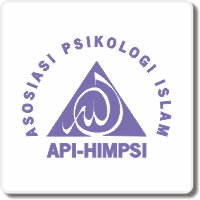THE IMPACT OF COMPETENCY AND WORK PLACEMENT ON EMPLOYEE PERFORMANCE AT THE TOURISM OFFICE OF SLEMAN REGENCY
DOI:
https://doi.org/10.32923/psc.v5i2.3547Keywords:
Competency, Work Placement, Employee PerformanceAbstract
Increased competition motivates organizations to continue enhancing performance. Transferring and promoting employees is one measure that can be taken to enhance employee performance. The mutation is anticipated to serve as the appropriate link between employees and positions. The purpose of this study is to investigate the mechanism of employee placement and the requisite competencies at Sleman Regency Tourism Office, as well as the effect of competence and job placement on employee performance. This study employed diverse research methodologies (Mixed Method). The sample in this study was 59 civil servants, freelance daily workers, and freelancer workers at Sleman Regency Tourism Office, which was determined by using the disproportionate stratified random sampling technique. The instrument utilized in this investigation is subjected to validity and reliability testing. Data collected using a questionnaire, interview, and documentation. The analysis was performed by data reduction, triangulation, drawing conclusions, multiple linear regression, and hypothesis testing. The study findings indicate that partial competence has a positive and significant impact on employee performance. The work environment has a significant and positive effect on employee performance. This is also supported by the findings of interviews, which indicate that the quality of employee performance will increase if the work placement is conducted properly and appropriately. This study demonstrates that both competence and work placement have a significant impact on performance. The R value for all Sleman Regency Tourism Office employees with a coefficient of determination is 0.500, or 50.0%.
Downloads
Published
Issue
Section
License
Copyright Notice
The Psychosophia: Journal of Psychology, Religion, and Humanity is under the Creative Commons Attribution 4.0 International (CC-BY 4.0) License, according to which:
1) Authors retain copyright and grant the journal the right to first publication, with the work simultaneously licensed under the Creative Commons Attribution (CC-BY 4.0) that allows the sharing of articles published with the acknowledgment of authorship and the initial publication in this journal.
2) The authors are authorized to make additional contracts separately for distribution of the version of the work published in this journal (for example, publication in an institutional repository or as a chapter of the book), as long as there is recognition of authorship and initial publication in this journal.
3) Authors are authorized and encouraged to publish and distribute their work online (for example, in institutional repositories or on their personal pages) at any time before or during the editorial process, as it increases the impact and reference of the published work.






